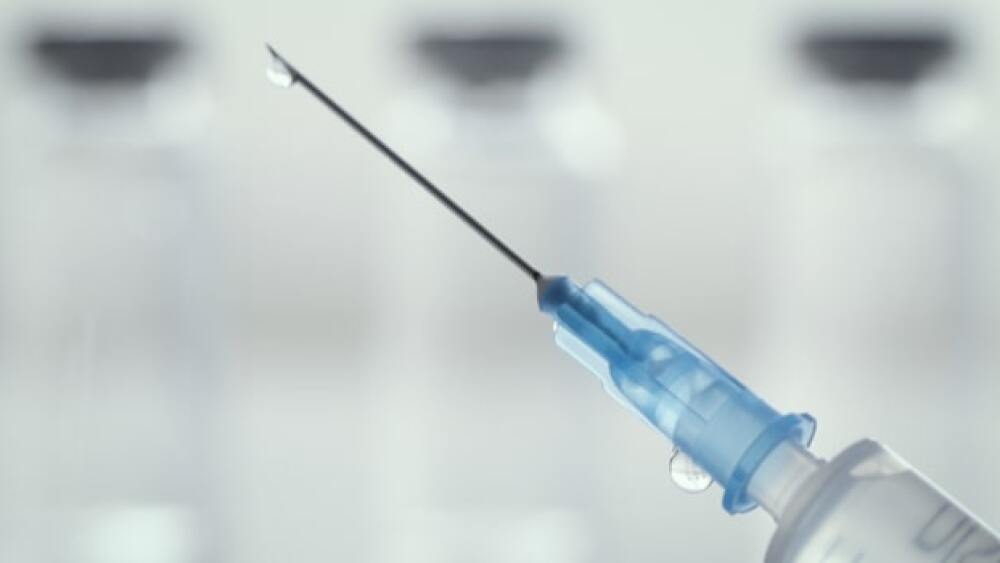While Russian President Vladimir Putin expressed confidence in the preventative medication against the novel coronavirus, scientists from across the globe expressed concern over the lack of available data.
Russia surprised the world Tuesday when the government of that country announced its regulatory agency approved the world’s first COVID-19 vaccine – a vaccine that has yet to go through Phase III testing.
While Russian President Vladimir Putin expressed confidence in the preventative medication against the novel coronavirus, scientists from across the globe expressed concern over the lack of available data that could provide a key to how well the drug could work stemming the rise of COVID-19.
The little data that is available, two Phase I/II studies posted to clinicaltrials.gov, shows a total of 38 patients treated with the experimental vaccine. There is a question as to whether or not that is 38 per study for a total of 76, or 38 studied twice. Nevertheless, the number of known dosed patients is far lower than the tens of thousands of patients involved in ongoing Phase III studies of vaccine candidates from notable companies such as AstraZeneca, Pfizer and BioNTech and Moderna.
Thomas Wicks, chief strategy officer for TrialScope, said the data that is known outside of Russia appears to be incomplete, particularly for a drug that has been approved for public use.
“With 38 patients in the study, it’s pretty hard to make generalizations about safety and efficacy from this many participants,” Wicks told BioSpace in an interview. He added that rules for conducting clinical trials in Russia do not call for transparency, as does the western world, which makes things murky when it comes to talking about the vaccine.
If it turns out that the vaccine is safe and works, then Wicks said the approval will be seen as a “gamble that paid off.”
“I hope for the sake of everyone that it’s safe and effective,” he said. “Right now, it doesn’t appear to be ready for prime time.”
Russia’s vaccine, dubbed Sputnik V, is an adenoviral vector vaccine developed by Moscow’s Gamaleya Institute. The vaccine has been genetically modified to infect cells than make those cells manufacture spike proteins of SARS-CoV-2, the novel virus that causes COVID-19. There are some concerns over the long-term efficacy of this type of vaccine due to high pre-existing immunity to the viral vector, which has been seen in other vaccine candidates, such as the one developed by China’s CanSino. When Russia announced the approval of the vaccine, the government hinted that it would conduct Phase III studies after the fact, as a sort of confirmatory trial. Wicks speculated that the late-stage study could likely track those who have been given the vaccine to determine its safety and efficacy – as opposed to a more traditional blinded, placebo-controlled study.
Philipp Rosenbaum, Senior Infectious Diseases Analyst at GlobalData, a leading data and analytics company, speculated the vaccine was approved so quickly for political reasons. Rosenbaum said being first to develop an approved vaccine will provide an economic boost for Russia’s economy, particularly as the government of that country is striking deals with various countries to market the vaccine. Despite that economic boost, Rosenbaum, like other scientific researchers, questions the efficacy of the medication.
“Companies and regulatory agencies from the U.S. and China have both noted that a longer study than Russia has conducted is necessary to demonstrate protection, as well as pointed out that standards for clinical trials are not as transparent in Russia as in other countries,” Rosenbaum said in a statement.
Wicks, who is a clinical transparency proponent, reiterated the need for vaccine makers to post their data for all to see, particularly in a climate when there are so many conspiracies about vaccines. If that vaccine fails, Wicks said it could add fuel to the fire for conspiracy theory advocates.
“This undermines the trust in an environment where trust is short,” he said of the lack of supporting data. “There’s a broad set of vaccines being pursued. You want it to be done in the right way to have the data available to compare the data and find the right vaccines for a global vaccinations program.”
In some ways, Wicks said he could understand if the Russian government expedited approval under an Emergency Use Authorization, such as the FDA used to bring Gilead Sciences remdesivir or the malaria drug hydroxychloroquine forward to treat COVID-19 patients. If Sputnik V had been greenlit under that type of authorization, Wicks said it would be less concerning because such a status could be revoked, as was seen with hydroxychloroquine following clinical data that did not support the efficacy of the drug for this indication.
“It just seems incomplete to grant it full authorization,” he said.
Wicks speculated that in the United States, the FDA could grant Emergency Use Authorization to one or more vaccine candidates if interim analyses of Phase III data support efficacy and safety. But, that remains to be seen, he said, and would be based on an availability of hard data.





